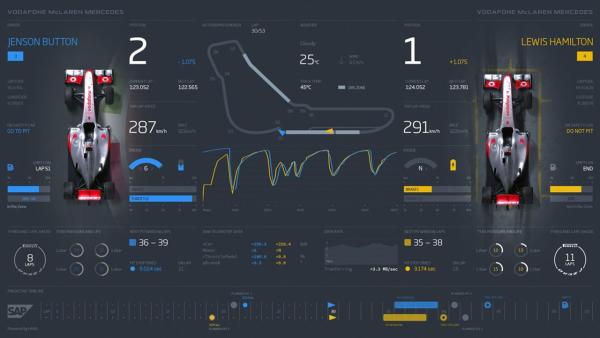Student Projects
The goal of the capstone project is to apply theoretical knowledge gained during the time spent at the Data Science program into a realistic project involving real datasets. During the project, students are heavily involved in the process of finding real-world data science problems and solving them. The capstone project begins with collecting and processing data in order to implement the appropriate analytic methods to the real-world problems. Throughout this process, problem statements and definitions play a major role in the capstone and the datasets can be collected from industry, government, non-governmental organizations (NGOs), or academic research.
Learn more about some of the recent capstone projects completed by students from Data Science Program.
Capstone - Formula One Race Prediction Model
Capstone Completed By: Spencer Staub (Dec '22)
Formula One has recently stepped into the worldwide spotlight due to the new hit Netflix series “Drive to Survive”. The increased popularity of the sport has shown record viewership, especially for the United States which will have a total of three Formula One Grand Prix in the upcoming 2023 season. This capstone aims to create a machine learning model to predict race outcomes by evaluating data from, but not limited to, races, lap times, and telemetry sensors. Being a Formula One fan for the past five years, this project will aim to combine my limited subject matter expertise of the sport, as well as the technical skills learned in the Data Science graduate degree program at the George Washington University.
Access Spencer's Capstone Powerpoint.
Capstone - Decarbonization of Transport (World Bank)
Capstone Completed By: Sara Sanchez (Dec '22) and Shuting Cai (Dec '22)
The transport sector is one of the fastest-growing emitters of global greenhouse gas (GHG), making it a critical target for national climate change mitigation efforts. Road-based transport contributes to nearly 75% of direct CO2 emissions from the direct combustion of fuels. This is a reality in developing countries, where light-duty passenger vehicles (motorcycles and cars) and heavy-duty passenger and freight vehicles (buses, trucks, and vans) are often older and more polluting. As a result, actions are needed to combat climate change and its impacts. This objective is on the urgent agenda of all countries.
To fill this gap, this project will use household survey expenditure data for fifteen countries (mainly developing) to parameterize Gompertz and Logistic functions of passenger car and motorcycle ownership versus monthly household expenditure (proxy of income). It would benefit the client countries to update the transport sector master planning and modeling of Nationally Determined Contributions (NDCs) of the Paris Agreement, as well as for development partners supporting these client countries in their analysis and researchers exploring emissions and development pathways in the transport sector for developing countries.
Access Sara and Shuting's Capstone Powerpoint.
Capstone - Fixed Wireless Broadband
Capstone Completed By: Brian Wilson ('20)
The FCC's Connect America Fund (CAF) is a reverse auction that aims to expand broadband connectivity to underserved regions of the U.S. through grants to internet service providers. Connecting households via coax, fiber, and similar physical technology is prohibitively expensive. Wireless technologies make connectivity more economical but are limited to areas with minimal natural or man-made structures impeding signal propagation.
The goal for this project is to analyze all CAF-eligible census blocks to identify those most suitable for fixed wireless broadband deployment. Each block will be scored based upon housing density, tree coverage, and the area’s topology using publicly available geospatial datasets.
Access Brian's Capstone PowerPoint.





